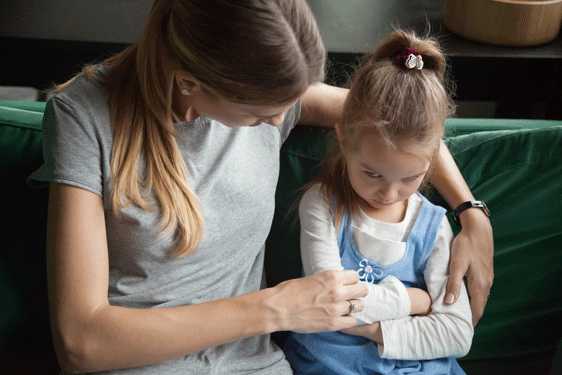How the Word No Can be Harmful to Children

By: David Schwartz
This article is published in : psychology today
Whether you are a lenient parent or a strict one, chances are you’ve said the word “no” to your child a lot. How often does a child ask for something, or do something, or act in ways that need to be corrected? If you think back to your own childhood, you probably remember numerous times you were disciplined, or reprimanded.
The question is what is this doing to a child’s psyche? How does hearing the word no impact a child’s development? When does it become detrimental?.
While redirecting toddlers and small children is often necessary to help keep them safe, as they grow and start to explore their world, the negative reinforcements often increase. They have curfews; limits on their television watching or video game playing; bedtimes, etc. Then, as children turn into adolescents, they start to test the limits of their household rules. They want to assert their independence which can lead to household friction. As a result, the “no’s” may increase. Then, as they go through their teenage years, their pushing of boundaries can lead to even more negative responses.
While the word “no” is not in and of itself a problem, constantly hearing negative feedback can be detrimental to a child’s healthy development. As children grow, they are constantly exploring who they are and testing their limits. They want to be able to do what they want when they want. This manifests itself in them asking for more and more freedoms, even freedoms they may not be ready for. For example, they may want to sleep over at their girlfriend’s house, or feel school is a waste of time and want to quit.
The danger of clamping down on a child’s behavioral issues occurs when the negative reinforcement continually outweighs the positive. When they are constantly being told they are wrong and not living up to your expectations, they don’t always understand your intention is to help them do better. Instead, it’s easy for them to internalize that you don’t approve of them, or even don’t like them.
While adolescents are pretty good at pretending they don’t listen, or even care much about what adults say, this is often not the case. What parents and caregivers say to children can carry a great weight. Children’s ability to use their judgment and make wise decisions is formed in large part by their self-image.
While there is great value in helping children and adolescents make better decisions, the problems arise when the corrective statements start to eat away at their belief in themselves. Children who receive constant criticism can feel that they can’t do anything right and give up trying. This can lead to them trying to escape these feelings with dangerous behaviors such as drugs or self-harm.
Related Posts
4 actions to help end child labour and build a fair economy
Child labour is not just a historical problem but also an ongoing one. It is still depriving children of their childhoods, limiting their access to education, shortening their life expectancy, and perpetuating poverty….
November 24, 2022Life a ‘waking nightmare’ for 12 million children in Yemen
“Over 80 per cent of people require urgent humanitarian assistance and protection. Including 12 million children, whose lives are a waking nightmare….
December 12, 2020


